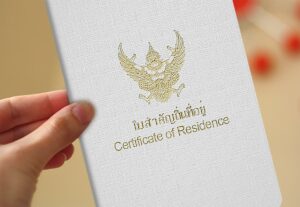Translation Services in Thailand. Thailand’s legal, business, and immigration systems often require documents in both Thai and foreign languages. For expatriates, businesses, and tourists dealing with official matters, accessing translation and legalization services is essential. These services ensure that documents such as birth certificates, marriage certificates, contracts, and court documents are accurately translated and legally recognized by Thai authorities. This article provides an in-depth look at the types of documents requiring translation, the process of legalization, and important considerations for navigating these services in Thailand.
1. Types of Documents Requiring Translation and Legalization
Legalization and translation services are commonly required for a range of official documents, both for personal and corporate purposes. The most commonly translated and legalized documents in Thailand include:
a) Personal Documents
- Birth Certificates: Foreign nationals applying for visas, residency, or citizenship must submit translated and legalized birth certificates.
- Marriage Certificates: When registering a marriage between a Thai national and a foreigner, or when seeking recognition of a foreign marriage, translation and legalization of the marriage certificate are required.
- Educational Certificates and Diplomas: Foreign educational qualifications often need to be translated and legalized for job applications, work permits, and academic purposes.
b) Corporate Documents
- Company Registration Certificates: Foreign companies establishing operations in Thailand must translate and legalize documents such as company registration certificates, articles of incorporation, and shareholder agreements.
- Contracts and Agreements: Business contracts signed in foreign languages need to be translated and legalized to be enforceable in Thai courts or regulatory bodies.
- Power of Attorney: When conducting business or legal matters, power of attorney documents may need translation and legalization, especially if granted by foreign entities.
2. Translation Services in Thailand
Translation services in Thailand typically involve certified professionals who specialize in legal, business, and technical translations. Accurate translations are crucial as discrepancies between the original and translated versions can result in legal challenges or delays in processing.
a) Certified Translation
Certified translations are translations completed by authorized translators who have been approved by the Thai Ministry of Foreign Affairs (MFA) or other regulatory bodies. These translations are commonly required for visa applications, legal disputes, or business filings, where accuracy is paramount.
b) Professional Translators vs. Machine Translation
Professional translators with expertise in Thai law and the local regulatory environment are vital for translating legal and official documents. While machine translation or non-professional services may be cheaper, they often produce inaccurate or incomplete translations that could lead to legal complications or the rejection of a document by Thai authorities.
3. Legalization Process in Thailand
Once a document has been translated, the next step is legalization, which involves verifying the authenticity of the document and its translation. Legalization ensures that foreign documents are officially recognized in Thailand. The process typically involves three stages:
a) Certification by Notary or Local Authorities
The first step in the legalization process is having the document certified by a local notary or relevant government authority in the document’s country of origin. For example, documents issued in the U.S. must first be certified by a U.S. notary before being sent for legalization in Thailand.
b) Legalization by the Ministry of Foreign Affairs (MFA)
In Thailand, the Ministry of Foreign Affairs (MFA) is responsible for legalizing both local and foreign documents. The MFA reviews the document to ensure it complies with local legal standards, confirms the accuracy of the translation, and provides an official stamp or seal indicating that the document has been legally recognized.
c) Embassy Legalization
For certain foreign documents, after being legalized by the Thai MFA, the document may need additional legalization by the relevant foreign embassy in Thailand. This step is often required for documents being used in another country or when specific bilateral agreements mandate additional verification.
4. Common Challenges in Translation and Legalization
Navigating the translation and legalization process in Thailand can present several challenges:
a) Language and Terminology
Legal documents often contain specialized terminology that may not have direct equivalents in Thai or the foreign language being translated. Professional translators familiar with legal jargon and local regulatory frameworks can ensure that the translations are precise and legally sound.
b) Bureaucratic Delays
The legalization process can involve multiple steps and government agencies, leading to delays if documentation is not prepared correctly. It’s essential to account for processing times, particularly when dealing with urgent matters such as visa applications, court filings, or business licenses.
c) Rejection of Documents
Improperly translated or legalized documents can be rejected by Thai authorities, requiring the applicant to restart the process. Common reasons for rejection include mistranslations, missing notary seals, or incomplete legalization by the MFA.
5. Choosing a Translation and Legalization Service Provider
Selecting a reliable and certified translation and legalization service provider is crucial for ensuring that the process goes smoothly. Key factors to consider when choosing a service provider include:
- Experience with Legal and Business Documents: Ensure that the provider has expertise in handling legal and business translations, particularly in the sectors relevant to your needs (e.g., real estate, corporate law, immigration).
- Approval by Thai Authorities: Choose a translator or service provider who is certified by the Thai Ministry of Foreign Affairs (MFA), as their translations will be accepted by government agencies and courts.
- Timely Service: Legalization and translation processes can be time-sensitive, so it’s important to select a provider with a track record of efficiency and quick turnaround times.
Conclusion
Translation and legalization services are critical for both foreign nationals and businesses operating in Thailand. Whether it involves personal documents for immigration purposes or corporate agreements for business transactions, ensuring accurate translations and proper legalization is essential to navigating the Thai legal system. By working with certified translators and understanding the complexities of the legalization process, individuals and companies can ensure that their documents are properly recognized and legally valid in Thailand.
You might also enjoy

Thai Business Partnership
A Thai business partnership is one of the most commonly

Thailand Permanent Residency
Thailand Permanent Residency (PR) is a highly sought-after immigration status

Child Custody in Thailand
Child custody in Thailand is governed by the Civil and


